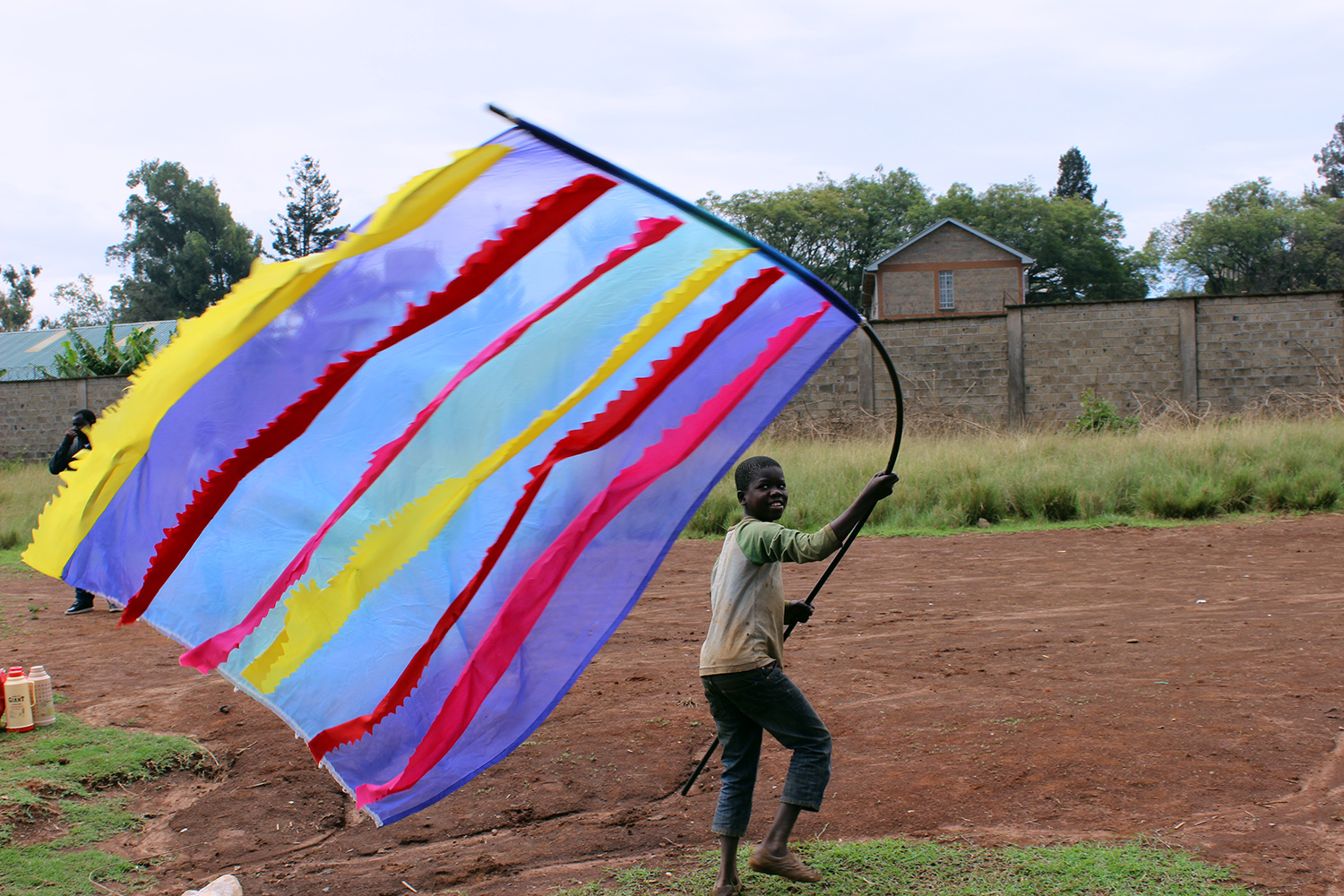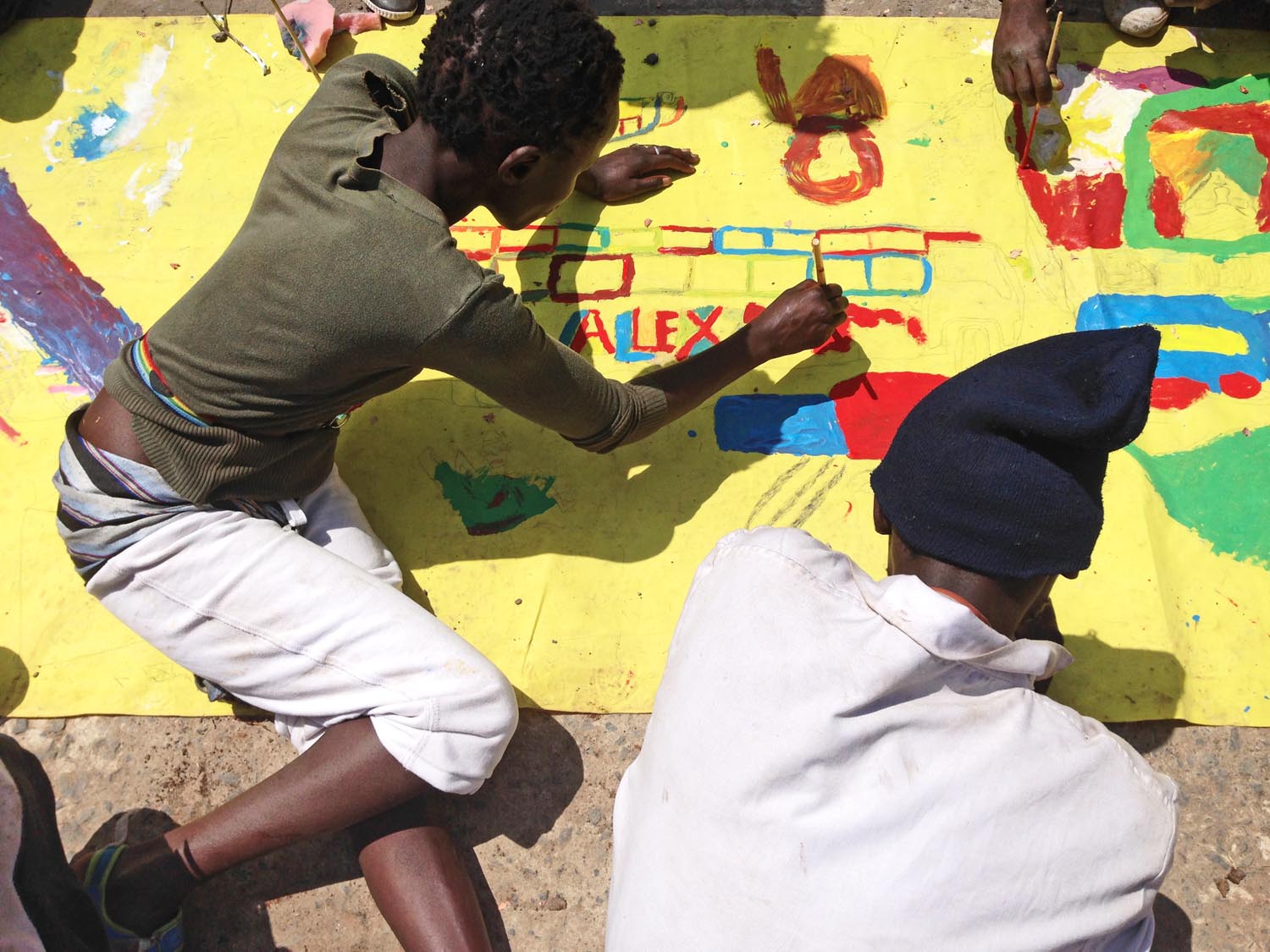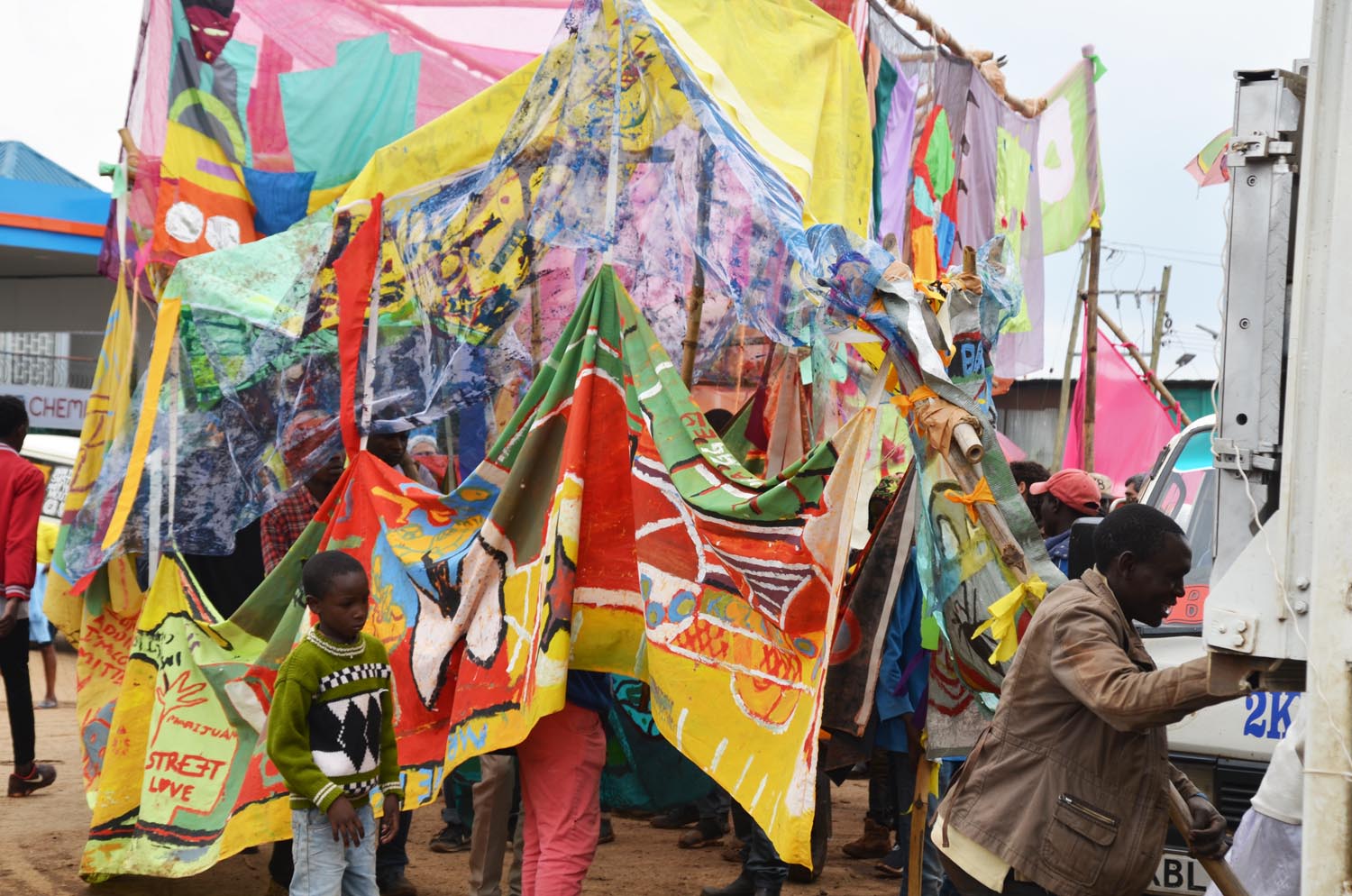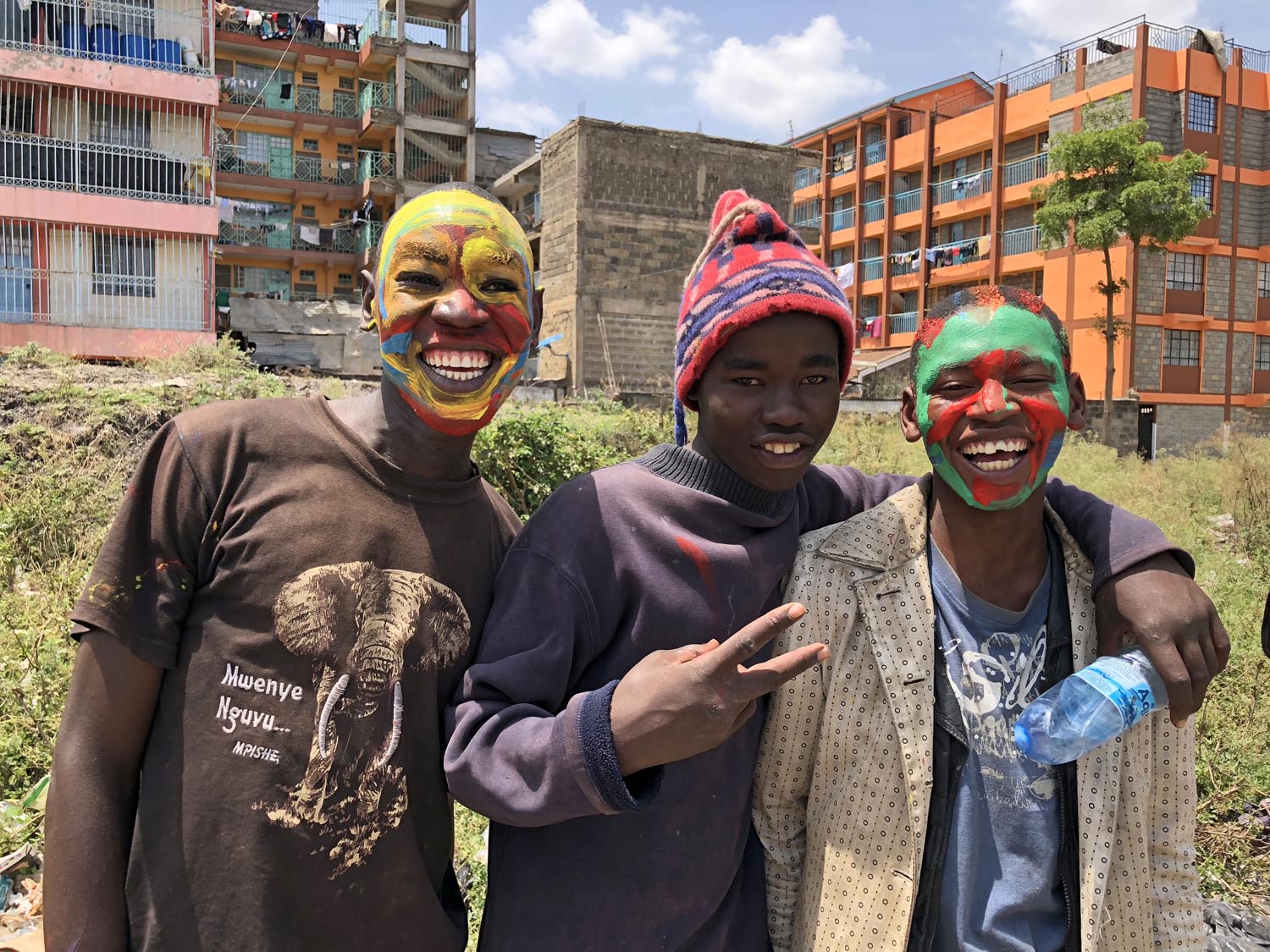The idea of organising a carnival came up from some talks Marco and I had when I was in Italy between 2008 and 2009. Marco used to go around to visit Milan’s art galleries and he often took me with him. In those years he kept telling me his idea of bringing a matatu (a minibus for public transportation which is often coloured, airbrushed and filled with loud music) to Milan.
During our talks we realised that Italy, and Europe, celebrate the carnival, which is an explosion of fantasy, just like matatus. Marco was wondering how Kenyan creativity would have been brought to life in a context like that. Carnival is madness, but also an explosion of life and an expression of the beauty of life.

The idea of the carnival has started becoming reality last year, while I was walking along Kabiria Road together with Chiara. We told to ourselves: “The Ciak! Kiberaproject is coming to an end. Our next challenge must be a carnival!” I once went to the Arcireale’s carnival – Sicily’s most beautiful – where parades with flowers, fire and smoke are organised. The celebrations last an entire week there. This got me imagining what could be generated from a similar experience if it’s brought to Africa. I really want to participate in a carnival in the streets of Nairobi, in Africa, and eventually see it having a life of its own, with its African uniqueness.
The idea of bringing a carnival to Nairobi, and organising it with street children, is brilliant. It gives the opportunity of making something that is still hidden shine. There are so many hidden treasures on the street that remain unknown until you touch them. A rough diamond seems like a worthless rock but if you work with it, it will shine. If you do nothing and ignore street children’s life, you won’t get to know, and understand, what we’re losing as human beings. The fact that we’re finally doing this carnival in Nairobi, after all these years, proves that our idea was like a seed in the conscience of many people and, after a long journey, is now growing.

The carnival gives us the opportunity of opening a magic window. Due to their living conditions, street children believe they can’t make their dreams come true so they keep them just in their heads. The carnival is actually a window that allows the world and society to see these hidden treasures. When it comes to the life on the street, we often see the negative side alone – people living in miserable conditions. But by giving them a chance these people shine. These children manage to do things we can’t even imagine. The carnival makes us see this potential to its fullest.
I think we have the chance of giving children a voice. They communicate in ways we don’t know, and only by doing so we can get to really know them. They’ll send a clear message on what their dreams are. They’ll talk about their everyday life on the street, how they live it, how they like it, what they’re learning from it. This carnival will make us discover the negative and positive sides of street life we don’t know yet. It will make us explore a still unknown world and will let street children teach us the small things that make life more beautiful and that we’re slowly leaving behind.

When we bumped against difficulties during the first workshops, I thought about the Chinese bamboo. The bamboo plant, in fact, grows in a strange way. Planting bamboo may seem a loss of time because you don’t see it growing through the years. Many stop cultivating it indeed. In reality, the plant takes five years to grow a solid network of roots. In the same way, our first (often difficult) encounters in the street were creating a network of relations. We were laying the foundations on which would build.
Building this carnival can be hard work because each group on the street is different and lives diverse experiences. Sometimes it takes more time to understand the dynamics lived on the street. But this allows creating a connection with them, familiarising and making them understand we’re friends who came to participate in their life in a new way. When there will be mutual trust, then our work will take off and speed up because we’ll understand each other faster and more easily. Just like the Chinese bamboo that grows fast and tall after five years, all of a sudden.
This carnival has been put at the service of something precious as it has effects on the idea street children have of themselves, whilst bringing beauty out of the experience they’re living. You can be beautiful inside but if society keeps sending you negative messages about yourself, you start questioning your beauty. When children thrive through an experience of this kind, this helps their self-esteem and reinforces the idea they have of themselves. Even if they’re going through a rough situation, they understand they’re special and that they have something unique in the world. They’ll understand there’s still hope, all is not lost, there’s something we can do. This carnival proves this. It is a proof that there’s life, even on the street.

Okada Buluma was born in Kenya, near Lake Victoria in 1982. He coordinates the educational project of NGO Koinonia community for children and young people. He has lived on the street in his past and loves to play.